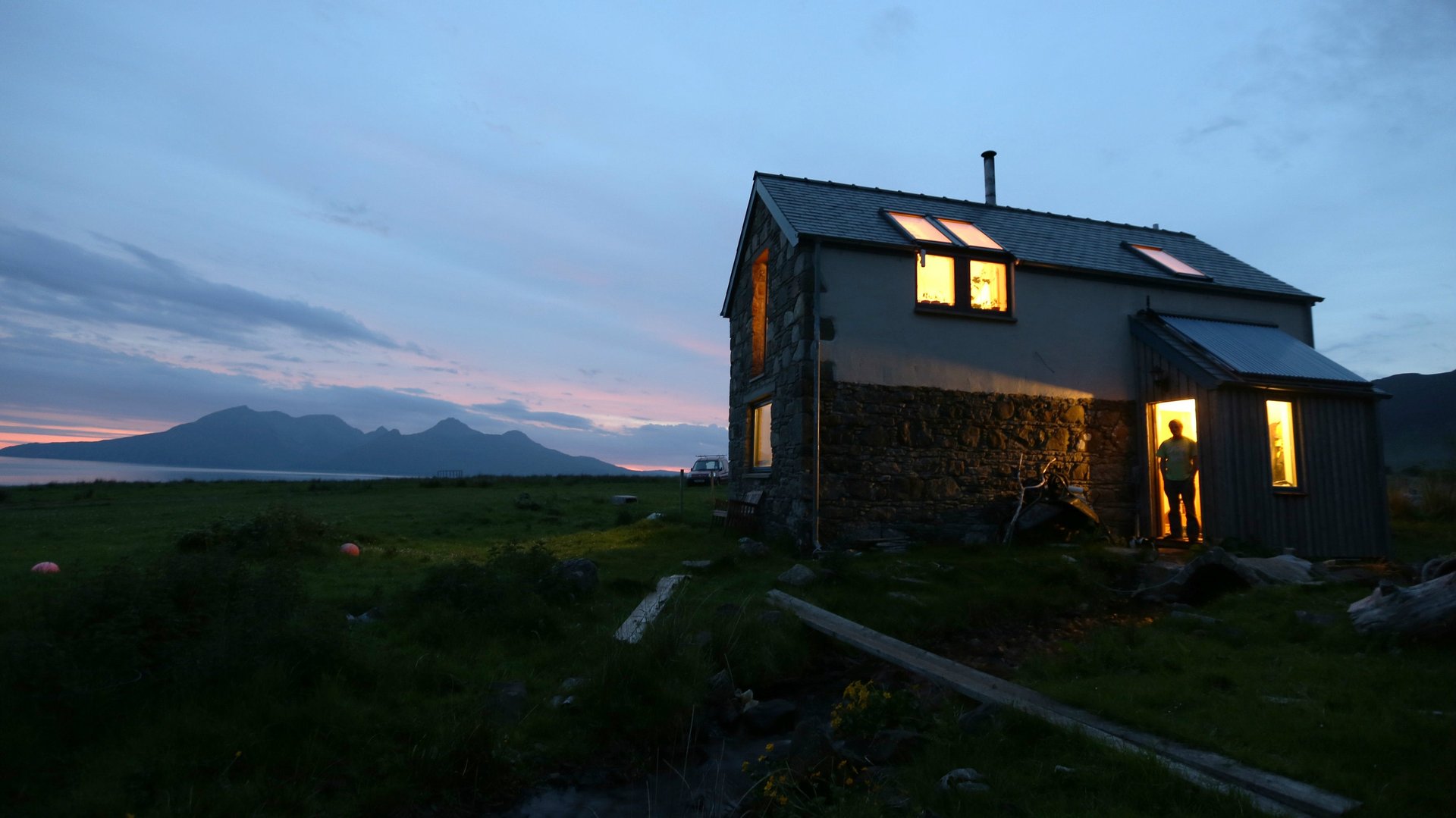A Scottish island with six residents wants a rebrand to avoid its community’s extinction
If you’ve ever dreamed of living out the old adage “hell is other people” on a remote island, you’d probably love the Scottish island of Ulva. But for the six people who live there? Not so much.


If you’ve ever dreamed of living out the old adage “hell is other people” on a remote island, you’d probably love the Scottish island of Ulva. But for the six people who live there? Not so much.
The island, just 4,600 acres, is part of the Inner Hebrides archipelago. It’s accessible by an on-demand ferry that doesn’t run on Saturdays, or in adverse weather conditions. Home to more than 600 residents in the early 19th century, its population has dwindled to just six people. Earlier this year, when the family who has owned the island for 70 years put it up for sale, community organizers under the banner of the North West Mull Community Woodland Company saw an opportunity for collective ownership.
Private land ownership is common over large swaths of Scotland’s rural areas; it’s estimated that just 432 owners (paywall) account for half of privately-held land in Scotland. In Ulva, according to some, this ownership model hasn’t worked out so well. While the family says it’s done everything in its power to “stem the decline of Ulva’s island population” while still protecting the island’s biodiversity, depopulation has continued and many buildings and infrastructure have fallen into disrepair.
The ruling Scottish National Party has backed the community-ownership bid for Ulva, aligning with the party’s position that diversification of land ownership is needed nationwide. A buyout of Ulva could also serve as a deterrent to the private sale of other estates, as the Financial Times (paywall) reported, “making them potentially less attractive to the wealthy individuals who have long flocked to Scotland for the opportunity to own swaths of some of the world’s finest scenery.”
For those backing the community-ownership bid, though, it’s not about political land reform, but everyday life. They want business, tourism, housing, and maybe even a pub. While the island currently markets a single self-catering Fisherman’s Cottage and hostel on its website, there’s a case to be made that the island’s touristic potential is far from fully realized. In addition to housing pre-Celtic remains, it’s said that author Beatrix Potter was a fan, and links to medical missionary David Livingstone and novelist and playwright Sir Walter Scott are also heralded, while red deer and golden eagles could lure wildlife watchers.
For now, the decision—as well as a potential onslaught of people—hangs in the balance.